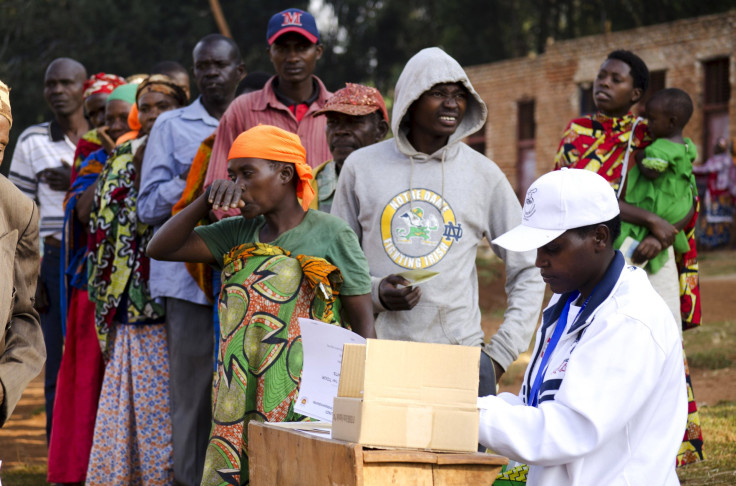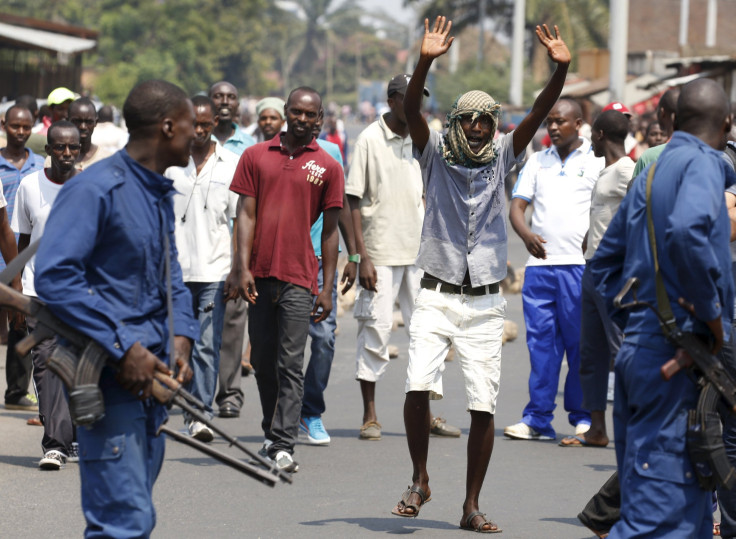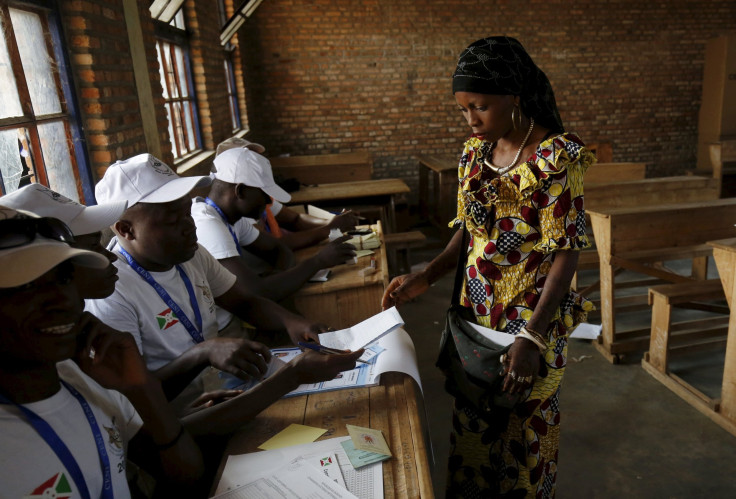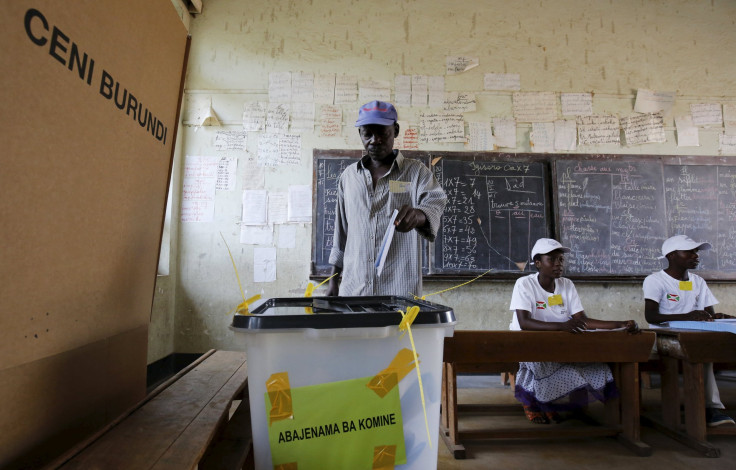Burundi Election 2015 Pictures: Amid Protests Over Nkurunziza Candidacy, Intimidated Voters Head To Polls

Voting in Burundi got underway Tuesday despite widespread unrest over the candidacy of President Pierre Nkurunziza, who critics argued was illegally running for a third term. Polls opened at 6 a.m. local time after a night of gunfire in the capital, Bujumbura, and residents awoke to find a policeman and a civilian dead. Protests continued as the day wore on.
"People do it to intimidate voters," presidential adviser Willy Nyamitwe told Reuters. "They don't want the voters to go to the polls."
About 3.8 million people in Burundi were eligible to vote in the controversial presidential election, which has been criticized for being one-sided, the Independent reported. Four of the eight candidates withdrew in recent weeks after Nkurunziza, who's been in office since 2005, announced his intent to run for another term. Demonstrators claim Burundi's constitution forbids this, though the country's constitutional court ruled Nkurunziza's candidacy OK because he was initially appointed, not elected.
"Despite a facade of pluralism, this is an election with only one candidate, where Burundians already know the outcome," Thierry Vircoulon, of the think tank International Crisis Group, told Al Jazeera.

#burundi election Nyakabiga, writing "nkurunziza =crook, killer" on the floor dozens cheer pic.twitter.com/rL1iWZkjjU
— Maud Jullien (@MaudJullien) July 21, 2015
The protests have resulted in at least 77 deaths and caused about 100,000 residents to flee to nearby Tanzania. They also affected the election: Turnout on Tuesday was low, the New York Times reported. Several journalists on the ground wrote that they'd seen voters trying to wash off ink indicating they'd visited the polls to avoid confrontation in the streets.
“I do not want others to know I voted,” resident Ndizeye Leonidas told the Times, adding, "I am afraid there is going to be a civil war."
#Burundicrisis President Nkrurunziza together with first lady voted a while ago in hometown of #Ngozi pic.twitter.com/cWI4biT76n
— Mugo Mugo (@PMugoMugo) July 21, 2015Tension is rife. #Burundi Voters try to remove indelible ink after casting their ballots. #SABCNEWS pic.twitter.com/LhJUgEUfIr
— Sarah Kimani (@sarahkimani) July 21, 2015The situation could get worse if Nkurunziza wins, Institute for Security Studies researcher Yolande Bouka told Bloomberg. She said the insurgency's spread and power means Africa could see "continued violence and insecurity in Burundi for the foreseeable future."
#Nyakabiga #bujumbura happening now #burundi2015 #burundicrisis pic.twitter.com/sVXDmRlROq
— harumutasa/aljazeera (@harumutasa) July 21, 2015
© Copyright IBTimes 2025. All rights reserved.






















